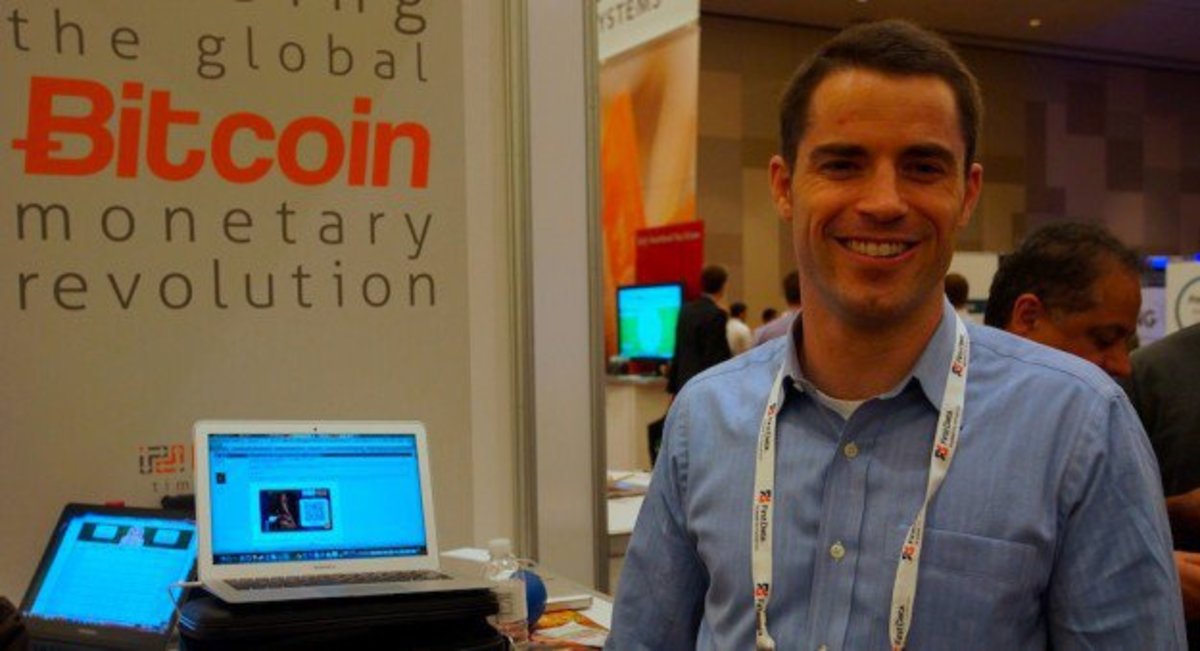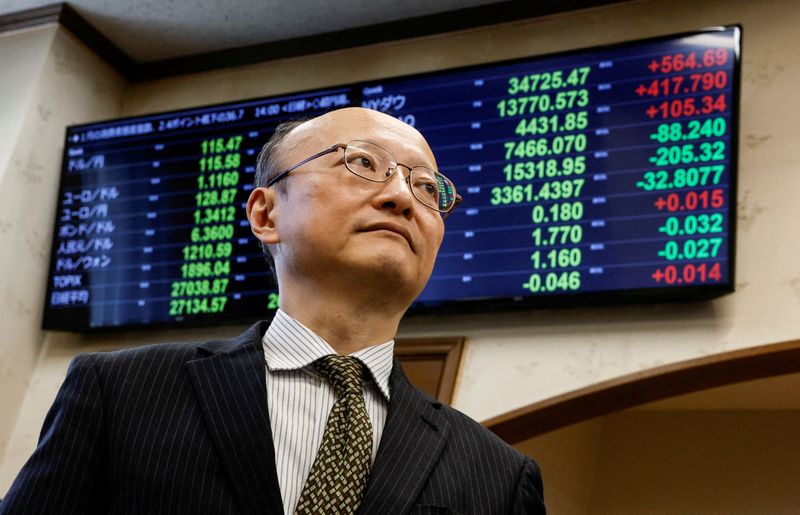Month: April 2024
DOJ Arrests Early Bitcoin Investor Roger Ver, ‘Bitcoin Jesus,’ on Charges of Tax Fraud
Roger Ver, a prominent early investor in Bitcoin and famously dubbed “Bitcoin Jesus,” has been indicted by the Department of Justice (DOJ) on charges of mail fraud, tax evasion, and filing false tax returns. Ver was arrested over the weekend in Spain based on these criminal charges, and the U.S. intends to seek his extradition for trial.
JUST IN: 
— Bitcoin Magazine (@BitcoinMagazine) April 30, 2024
The indictment alleges that Ver, formerly of Santa Clara, California, owned and operated MemoryDealers.com Inc. and Agilestar.com Inc., both of which were involved in selling computer and networking equipment. Starting in 2011, Ver purportedly began acquiring bitcoins for himself and his companies, amassing a significant amount by 2014, totaling around 131,000 bitcoins with a value of approximately $240 million.
Ver then obtained citizenship in St. Kitts and Nevis in 2014 and renounced his U.S. citizenship shortly thereafter, in a process known as expatriation. This action subjected him to U.S. tax laws, including reporting capital gains from the sale of his worldwide assets, including bitcoins, and paying an “exit tax” on those gains.
The indictment alleges that Ver provided false or misleading information to a law firm and an appraiser, concealing the true number of bitcoins owned by him and his companies. This resulted in the preparation and filing of false tax returns that significantly undervalued the companies and their bitcoin holdings.
By 2017, Ver’s companies still held approximately 70,000 bitcoins, which he allegedly sold on cryptocurrency exchanges for around $240 million. Despite not being a U.S. citizen at the time, Ver was still legally obligated to report to the IRS and pay taxes on certain distributions, which he allegedly failed to do, causing a loss to the IRS estimated at over $48 million, the indictment stated.
Acting Deputy Assistant Attorney General Stuart M. Goldberg and U.S. Attorney Martin Estrada announced the charges, with IRS Criminal Investigation’s cybercrimes unit handling the case. An indictment is an allegation, and all defendants are presumed innocent until proven guilty in court.
Yen falls after US labor costs data as eyes turn from Tokyo to Fed
Post Content
The Weekly Re-Org: War Of Attrition
Remember that movie where Sandra Bullock crosses the entire country blindfolded because peaking outside means you’re basically facing a certain death?
That must be how it feels to build anything in Bitcoin right now.
Everyone is just moving blind. The United States government is taking everyone along for the ride and no one knows where we’re headed. There are no instructions you can read, and no rules to follow. You move an inch in the wrong direction, you make one unfortunate shitpost, or maybe you tweet at Elizabeth Warren on her bad day. You get your head chopped off.
Imagine you’re one of the Samourai Wallet developers. One day, you decide enough is enough and take the blindfold off. You make a concerted effort to engage with the regulators and bring two dozen of your peers on board. You pay top dollar and hire the best lawyers in the industry to help everyone see through the regulatory fog.
Four months later, chopped.
Beyond the human tragedy unfolding here, this should be a cathartic moment for the industry.
We’ve spent the last decade trying to get into the good graces of regulators. We’ve asked permission, laid out red carpets and practically begged for consideration. Millions of dollars were donated to lobbyists and many more were put to work by any company seeking to do business with United States citizens.
If last week is any indication, it was all for naught.
Did you think only shitcoins get you rugged?
Sure, the Samourai guys seem like easy pickings. Inflammatory personalities and bombastic statements are enough to convince the casual observer that they are guilty, if only of wrong-think. Openly challenging the government and inciting individuals to take control of their financial privacy appears to be a criminal offense these days.
Even in Bitcoin circles, “moderates” argued that well… they were brash meanies so they probably deserved it. As far as they’re concerned, there is no need to overreact.
“Nothing to see here.”
Back in the real world, your head starts spinning once you begin reading the indictment. The language is flimsy. The technical concepts are bastardized. Even the most sensationalized charges are incredibly tenuous. One loose Twitter DM, a rather vague presentation slide, and a casual shitpost. Given the defendant’s history, I’m actually astounded they couldn’t conjure up something more incriminating. Maybe they have a couple of aces up their sleeves but at first glance, none of it adds up.
That is until you zoom out and look at the whole picture. What if the reality distortion field is intentional? What if Keonne Rodriguez and William Hill are the fall guys for something far bigger than them?
We don’t have to guess. There is no conspiracy required here. The day following the Samourai team’s arrest, the United States Attorney for the Southern District of New York laid it all out in the open. In their case against Tornado Cash developer Roman Storm, US attorneys submitted their response to the defense’s appeal to dismiss, and boy is it a doozy. Not only were we operating blindly, but it is argued everyone has been breaking the law the whole time. A decade of FinCEN guidance? Irrelevant.
Under the terms set in this document, every Bitcoin transaction probably ought to be KYC’d. Peer-to-peer software is unlawful and self-custody should be prohibited.
Criminal intent
Don’t fall for the cheap tricks of high-profile cases and punk-rock developers. The United States government is not trying to prosecute criminals, it is seeking to reset the rules of the game and redefine the law so that everyone who doesn’t have a license to operate is deemed a criminal.
It is not just Samourai Wallet or Tornado Cash that is on trial. It is your financial freedom as well.
Of course, those amongst us who make a living out of kissing politicians’ feet and have enough of a regulatory moat will try to convince you otherwise. You aren’t lobbying hard enough, they will say. They probably genuinely believe that, if worst comes to worst, we’ll also vote ourselves out of that one.
Some are already heeding the warning shots. On Friday, ACINQ, creators of the Phoenix Lightning wallet, announced that they were pulling their product from the US app stores.
Recent announcements from US authorities cast a doubt on whether self-custodial wallet providers, Lightning service providers, or even Lightning nodes could be considered Money Services Businesses and be regulated as such.
— ACINQ (@acinq_co) April 26, 2024
Others are calling the government’s bluff and taking a stand. Refusing to serve US customers might work in the short term to reduce one’s liabilities but it also feels like kicking the can down the road. The precedent that could be set in this case presents the genuine risk of being used by other countries as a basis for similar policies. Give them an inch here and they’ll take a mile.
The fight has been brought to us and must be responded to in kind. The rule of law is being challenged. Courts are being weaponized. For Americans, this is a battle for constitutional rights. For the rest of the world, this is a cautionary tale.
For Bitcoiners, this is an opportunity to let go of the divisive rhetoric and align against the actual enemy at hand, the State.
pigeons : you live in a place where fighting back worked. the rest of us live in the rest of the world where we got crushed.
mircea_popescu : that is a good point, yes.
mircea_popescu : but I intend to hold up that legacy.
Coinbase Integrates Bitcoin Lightning for 100 Million Users
Bitcoin and crypto exchange Coinbase has integrated Bitcoin’s Lightning Network, enabling faster and cheaper BTC transactions for its users in the United States (with the exception of New York).
As the largest Bitcoin exchange globally by users, trading volume, and custody of assets, Coinbase’s adoption of Lightning is a major win for the Bitcoin scaling solution. Lightning allows near-instant Bitcoin payments with significantly lower fees by moving transactions off-chain.
Coinbase has been working to implement Lightning support for years to further its mission of building a payments network costing pennies per transaction. This integration finally unlocks the power of instant and affordable Bitcoin payments for the exchange’s massive US user base.
By partnering with Lightning infrastructure provider Lightspark, co-founded by former PayPal executive David Marcus, Coinbase now gives users the option to withdraw or send Bitcoin via Lightning.
Transactions process in seconds and cost a fraction of on-chain BTC payments.
Marcus celebrated the milestone, stating “We’re so thrilled to be part of this journey with you to bring Lightning to 100s of millions of people in over 100 countries. Big milestone for the entire network and for Bitcoin.”
The Bitcoin community has long awaited Lightning integration from Coinbase, one of the world’s largest crypto exchanges.
While the Lightning Network has seen impressive growth over recent years, Coinbase’s integration marks the protocol’s biggest leap towards broader adoption yet, expanding the network to millions of new users.
Coinbase’s adoption signals faith in the network’s maturity and highlights the promise of Layer 2 scaling for helping Bitcoin evolve into a global payment rail.
Volatile Japanese yen movements suggest intervention; here’s how we can confirm
Post Content
Bitcoin and Biodiversity in the Cannabis Industry
The world witnessed unprecedented power grabs and supply chains disruptions over the past couple of years. The almost perfect alignment between big government, big banks and corporations should be a serious cause for concern across the agricultural sector. These moves represent no less than the most serious threats to our freedom and survival as businesses, probably even as individuals. If you stand for resilience and biodiversity, bitcoin should be a natural fit. Bitcoin ultimately protects biodiversity.
Concentration of power and money had started long before the COVID hysteria took over the world. Corporatization of the agricultural sector has been my main concern long before the legalization hype started. We all knew, deep inside that the cannabis space had this potential of becoming the ugliest manifestation of big ag, big tobacco and big pharma, all at once. It’s happening right before our very eyes and a lot of us feel helpless about this trend. While most in the industry have struggled to obtain the most basic financial services any legitimate business is entitled to, a parallel financial system emerged and is now representing a very serious alternative to the broken legacy system. Let’s dissect a bit what our options are and how they support our dream vision for the cannabis industry, medicinal plants, but also for the entire agricultural sector.
The broken legacy system
We are familiar with the central bank-managed, credit-based scheme that creates money out of thin air, unfairly distributed across the economy, mainly towards insiders, while the pleb receives crumbs to survive on and pays interests to crony banksters. Consumers and businesses alike take ever more credit to get ahead and acquire the assets they need to prosper or sometimes, sadly, to simply satisfy advertising-induced cravings. Sustaining a capital intensive cultivation operation in these conditions is a real challenge. Add the regulatory burden and you’ve got a perfect recipe for family business destruction.
You may be wondering how monetary policy, plant breeding and plant patents relate. Well, the fiat system fosters an annuitant scheme, where concentration of power and resources becomes the norm and where artificial moats prevent any new competitor from entering the market to provide better options to society. Cronyism goes hand in hand with predatory proprietary tactics. In order to pay their debt back or deliver expected returns to investors, innovators need to acquire exclusive rights over biology (e.g. plant varieties) to grab unjustified and unreasonable margins for long periods of time over a newly bred varietal. At scale, this system incentivizes breeders to limit access to their cultivars, preventing any other breeder from improving the genetic pool which ultimately destroys biodiversity by creating single points of failure in the preservation effort. It also fosters predatory practices on farmers and growers who face hefty fines and penalties for inadvertently breaching patents when growing such proprietary varietals. Ask corn and cotton farmers who got rekt by Bayer, Syngenta or Dupont after their fields were cross-pollinated with proprietary pollen from neighboring fields during windy days…
Let me pause to clarify something. Patents on technology can absolutely be legitimate to enable returns on capital intensive R&D. However, patents on biology are unethical for 2 main reasons:
They tap into an existing genetic pool that sits in the public domain, sometimes called “commons” (i.e. Big Ag initially used public domain varietals to breed patented varietals)They incentivize GMO development and ultimately, transhumanism
In the agricultural world, it seems the more central banks print money, the more concentrated markets become and the less innovation hits the market. In the context of plant breeding, biodiversity is inversely correlated to money supply, where fiat encourages sterile monocropping. Despite these growing predatory proprietary practices, debt levels are at an all-time high across the cannabis industry. Most of these zombie corporations will never repay their debt. The house of cards will harm many in its fall, including humble players who built the entire space, such as family businesses.
The cannabis industry has been consolidating at a concerning pace in the past few years. Canada and California are far from the legalization dream many of us had. Legacy farms are being forced out of the market and low quality corporate mids(cannabis of not the best quality) sprayed with synthetic terpenes (i.e artificial flavors) flood the market. We are all familiar with this race to the bottom pattern.
There should be room for high quality craft products. Such products are difficult to bring to market in a fiat-based system that requires ever larger economies of scales and upfront capital. Instead of consolidating the industry based on capital expenditure into artificial moats such as plant patents, a bitcoin-centric industry would fairly reward craft producers for the quality they bring to market, not their moats.
If you are a human-scale player and want to make a living from your passion for the plant, what are the best tools at hand? You should already know that open-source breeding is the most suited IP strategy for small breeders. You don’t want to fight the patent war with your limited means; against crony corporations sitting right next to the money printer. But how can you win the open-source game using unfit fiat money? Well, here’s come Bitcoin.
The new paradigm: sound money
Sound money is salable across space, time and scale, it adequately stores value for their hard-working holders, while respecting their privacy. It’s value-creators’ money, not annuitants’. It’s the adequate money for rewarding breeders who improve and maintain the genetic pool that ultimately benefits consumers. It’s scarce money that creates the conditions of abundance and biodiversity. But how?
Imagine being paid for your work in a currency that appreciates in time and preserves the value of your work, in other words, of the energy you expend to grow plants, select phenotypes, breed new seeds, select and package them. Imagine a currency that allows you to transact with people anywhere in the world, without asking permission from anyone and without doxxing you. That’s quite a revolution for growers and breeders who have been denied banking services and had to rely on cash to settle transactions, with all the risks pertaining to it.
Bitcoin is trustless, permissionless and instant transaction settlement between parties. It allows breeders and growers to live off of their passion, what they do best: farming and breeding. Breeders shouldn’t have to play the litigation game to enforce patents and defend their annuities to keep up with inflation and pay interest on printed money. Those who resorted to doing so usually regret it when they realize they can’t win at Big Ag’s game; after all the rules of the proprietary game are written by and for the cantillionaires. Small and medium size businesses cannot win this game in the long run because patent enforcement requires substantial cash-flows. Engaging in the plant patent game is a sure way to sell out down the road, or simply being pushed out of the market by bigger players.
Any entrepreneur thriving for financial autonomy and ultimately for freedom wants to convert their expended energy into hard money. With bitcoin, the incentive to compromise biodiversity to maximize annuities in order to compensate for melting fiat money disappears. With bitcoin, breeders and growers can focus on their craft, while storing the fruits of their work for the long term in the soundest money that exists. Bitcoin therefore allows for many small players to be part of the agricultural sector: it encourages anti-fragility, competition, and biodiversity.
This is not the only problem bitcoins solves for the cannabis industry. Transaction settlement has been a central issue. Excluded from the traditional banking system, too many legally operating businesses have had to rely on cash to settle transactions. Sitting on piles of cash in today’s world is impractical and indeed dangerous. Meanwhile these same businesses are paying taxes like any other. Taxation without financial representation. Bitcoin fixes this. By its trustless non-intermediated nature, bitcoin allows cannabis businesses to settle transactions in a secured way, while not relying on banks or payment processors. Who wants to pay onerous processing fees and beg for basic services to financial institutions that despised this industry for years? Why not turn this hurdle into a competitive advantage? Instead of jumping through hoops to be accepted into the dying legacy system, the entire cannabis industry should migrate to bitcoin and get ahead of the game, ultimately creating the blueprint for the agricultural sector at large.
This is a guest post by Remnantal. Opinions expressed are entirely their own and do not necessarily reflect those of BTC Inc or Bitcoin Magazine.
Nasdaq-Listed Coal Miner Adds 425 BTC To Balance Sheet
On a Q1 earnings call yesterday, Alliance Resource Partners, a coal mining company worth $2.8 billion that trades under the ticker ARLP on the Nasdaq, reported that it’s mining bitcoin and currently holding 425 BTC on its balance sheet.
Nasdaq listed Alliance Resources $ARLP, a $2.8b coal mining company, is mining #bitcoin, and currently holds 425 $BTC on its balance sheet.
The company has additionally adopted the new FASB accounting standards for its holdings. pic.twitter.com/uZomhnuBPz
— Dylan LeClair 
“In the second half of 2020, we started mining bitcoin as a pilot project to monetize already paid for yet underutilized electricity load at our River View mine,” said Cary Marshall, Senior Vice President and CFO of Alliance Resource Partners, on the call.
“Since then we have mined and now own bitcoin valued at approximately $30 million,” he added.
The $30 million figure comes from valuing each of the 425 BTC the company holds at approximately $70,500, the price at which bitcoin was trading toward the end of Q1 2024. After factoring in Alliance’s bitcoin mining expenses, the company saw a net profit of $7.3 million from Bitcoin mining in Q1.
The amount of Bitcoin Alliance holds ranks it 23rd on the list of companies that hold bitcoin on their balance sheet.
Joe Craft, President and CEO of Alliance, pointed out on the call that the company isn’t necessarily pivoting to a bitcoin-centric strategy but, instead, approaching its bitcoin mining operation with a high degree of practicality.
“We are selling what we need to cover our expenses, so our exposure is limited,” said Craft.
“We do have some extra capacity that we’re renting out to other Bitcoin miners within the data center that we’ve effectively built for this Bitcoin mining to take advantage of the low energy costs we have,” he added.
For more information on Alliance Resource Partners, visit the company’s website.
Japan reminds on FX readiness as data suggests $35 billion yen intervention
Post Content
$1 Million Bitcoin Alpha Competition for Bitcoin 2024
The below is an excerpt from a recent edition of Bitcoin Magazine Pro, Bitcoin Magazine’s premium markets newsletter. To be among the first to receive these insights and other on-chain bitcoin market analysis straight to your inbox, subscribe now.
We’re Looking For The Next Top Bitcoin Fund Manager!
Bitcoin Magazine Pro in partnership with Samara Alpha Management, is excited to announce the return of the Bitcoin Alpha Competition in conjunction with Pitch Day at Bitcoin 2024.
This prestigious competition seeks to find and fund the next leading Bitcoin fund manager, offering a groundbreaking opportunity for startup managers and hedge funds to display their innovative investment strategies to an elite group of institutional allocators.
Samara Alpha Management, will be awarding $1 million USD in seed capital to the winner of the Bitcoin Alpha Competition.
We are incredibly excited to provide emerging managers and hedge funds the opportunity to showcase their strategies to high-net-worth bitcoin investors and institutional allocators and encourage interested Pro subscribers to apply.
The Bitcoin Alpha Competition is an open-application competition offering a unique opportunity for individuals to present their alpha generation strategies to a premier audience of institutional allocators looking to discover new and innovative investment strategies. The winner will receive $1 million USD in seed capital and as well as operational infrastructure to run a successful fund, allowing the winning fund to put their strategy to the test and focus solely on generating alpha.
Applicant Criteria:
Targeting new Bitcoin fund managers focused on alpha generation.Requires a track record demonstrating 25%+ annualized returns per annum.Finalists will have the opportunity to pitch their strategies at the Bitcoin 2024 conference.The winner will receive $1 million in seed capital to kickstart their fund.
*Deadline for submissions is May 30, 2024.
Important Dates
Open-application window: April 30 – May 30Preliminary screening process: June 1 – June 30Final selection process: July 25-27 at Bitcoin 2024, Nashville
We are currently receiving applications – click below to apply:
Interview with Animus Technologies: Bitcoin Alpha 2023 Winner
**All applicants who pass the preliminary screening will be asked to present their strategy to Samara Alpha Management’s CIO and should be prepared to undergo Samara Alpha Management’s stringent due diligence process, including a formal presentation, track record analysis, and qualitative interviews. Finalists will be featured in the Bitcoin Magazine Pro newsletter and invited to Bitcoin 2024 in July to present their strategy on stage for Pitch Day.
Hong Kong Bitcoin ETFs Record Only $8.5 Million Volume on First Day
The recently approved Hong Kong Bitcoin spot ETFs began trading today, but saw relatively low volume on their first day. The Hong Kong Securities and Futures Commission (SFC) approved 6 total spot Bitcoin and Ethereum ETFs last week.
NEW: 

— Bitcoin Magazine (@BitcoinMagazine) April 30, 2024
The three Bitcoin ETFs that went live today include the ChinaAMC Bitcoin ETF, Harvest Bitcoin ETF, and Bosera HashKey Bitcoin ETF.
Despite the excitement surrounding the launch, the total trading volume for all Hong Kong Bitcoin ETFs stood at a modest $8.5 million (HK$67 million) for the first trading day.
Breaking down the individual Bitcoin ETF trading volumes, the ChinaAMC Bitcoin ETF recorded highest volume of HK$37.16 million, the Harvest Bitcoin ETF saw $17.89 million, and the Bosera HashKey Bitcoin ETF witnessed HK$12.44 million in trading.
The combined Bitcoin and Ethereum ETF trading volume for the day amounted to HK$87.58 million dollars ($12 million), as per data on Hong Kong Stock Exchange.
While the trading volumes may seem low compared to the U.S. spot Bitcoin ETFs, which saw a staggering $4.6 billion in trading volumes on their first day, industry experts remain optimistic about the prospects of these products in Hong Kong.
Samson Mow, founder of JAN3 expressed his belief that these ETFs will bear fruit in the long run, despite the initial low volume trading day:
“Bitcoin ETFs in HK are going to be big. Maybe not on day 1 or 2, but the long term implications are massive. There is really nothing else for Chinese investors to put their money into at this time.”
Click the image to learn more.
The launch of Bitcoin ETFs in Hong Kong is expected to attract more institutional investors and mainstream adoption of Bitcoin in the region over time.
As the global Bitcoin landscape continues to evolve, Hong Kong’s move to embrace spot Bitcoin ETFs could position the city as a key player in the future of Bitcoin in Asia.









